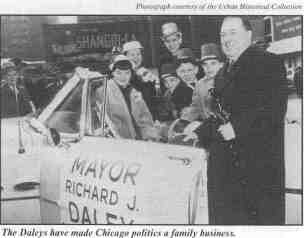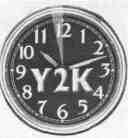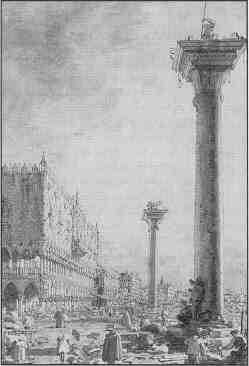Ryan was hoping his trip, meant to set the stage for trade, would coincide with a move by Congress to ease the 37-year-old economic embargo on Fidel Castro's Caribbean redoubt. A $69 billion agriculture spending bill passed by the U.S. Senate included a provision allowing food and medicine sales to the communist nation.
But U.S. House Republican leaders squelched the plan.
"I'm not sure that the American people would tolerate us giving food and drugs to terrorists," Hastert says. "It is certainly a state that has fed terrorists to us in the past. It's a state that some of our folks feel very, very strongly about."
Those "folks" are Cuban-Americans, most of them implacable Castro foes who form an important voting bloc in Florida and New Jersey. Hastert can hardly afford to alienate them as he struggles to hold on to a slim Republican majority in the House in the 2000 election,
But Hastert's stand puts him at odds with powerful economic interests in Illinois, where there are only an estimated 15,000 to 20,000 Cuban-Americans. Economically struggling farmers are eager to sell grain and livestock to Cuba, and manufacturers such as Peoria-based Caterpillar Inc. see a potential market 90 miles off the Florida coast slipping away to competitors who increasingly ignore the U.S. embargo.
"Obviously, we're disappointed about the loss of the embargo language," Illinois Farm Bureau President Ron Warfield said after the spending bill, which includes $8.7 billion in emergency farm aid, passed the House without the provision for Cuba.
Toby Eckert Copley News Service, Washington, D. C.
|
State comptroller takes control of local cemetery
The owner of an overgrown and dangerously neglected Peoria graveyard has until November 22 to hand over to the
state all of that cemetery's documents,
according to a judicial ruling.
In September, Comptroller Dan
Hynes, whose duties include overseeing Illinois' cemeteries,
revoked the operating
license of Springdale
Cemetery and fined
owner Larry Leach
$10,000 for violating
the state's law regulating most graveyards.
County Judge
Richard Grawey granted Hynes' petition to
put Springdale under
state receivership and
named former circuit
court Judge Richard
Eagleton to temporarily
oversee the cemetery.
Hynes says this is the first time in
Illinois that the owner of a cemetery
has had his license revoked for failure
to maintain the grounds.
Springdale, first chartered in 1855, is
one of the largest and oldest graveyards
in Illinois. More than 144,000
people are buried within its 225 acres,
including former Illinois Gov. Thomas
Ford. However, the cemetery also has
a long history of problems, including a
series of owners and legal entanglements (see Illinois Issues, October
1995, page 20).
Weeds threaten to overwhelm monuments at Peoria's overgrown Springdale Cemetery.
Porter McNeil,
Hynes' spokesman,
says, "The problem
with the Springdale
Cemetery has been a
priority issue since day
one." According to
McNeil, the revocation
was an initial step to
take the cemetery out of
the hands of its former
owner. "The goal now
is to find a permanent
owner."
Josh Bluhm
|
8 / November 1999 Illinois Issues
CHICAGO SNAPSHOTS
A proud Richard J. Daley poses with his family in 1956 as he prepares to walk
in his first St. Patrick's Day parade as Chicago mayor. In the back, wearing a
shamrock top hat, is future mayor Richard M. Daley. The shot is from A View
from Chicago's City Hall: Mid-Century to Millennium, a photograph collection
by veteran Chicago
political analysts
and historians
Melvin G. Holli
and Paul M. Green.
The collection
views the six mayors
of "the city on the
make" from Daley
to Daley as they
politic, greet celebs
and build a modern
city while attempting to forge ethnic
and racial coalitions.
Beginning in the
1950s, the photographs document the
solid administration of Daley the First, the twists and turns of Michael Bilandic and
Jane Byrne, the raucous "Beirut on the lake" of Harold Washington, a back-on-track Eugene Sawyer and the maturing of Daley II.
The book joins Holli's and Green's edited collection of essays, Restoration
1989: Chicago Elects a New Daley.
Burney Simpson
Court ruling opens HMOs to lawsuits
Can Illinoisans sue their managed care companies? For the first time, the
state Supreme Court has addressed that question. And the answer, at least in
the case of Petrovich v. Share Health Plan of Illinois Inc., is yes.
The case stems from a Chicago woman's claim that her health maintenance
organization didn't diagnose her cancer soon enough. She has since died.
In the ruling, issued in September, the court said the woman's estate could
proceed with a lawsuit under legal doctrines of "apparent authority" and
implied authority." In short, the court said. Share led Inga Petrovich to
believe that her doctors were employees of the HMO plan, though they were
independent contractors.
Share argued it couldn't be held liable for the doctors' alleged malpractice
because they weren't employees.
The court ordered the case back to Cook County Circuit Court.
That decision comes as the national political debate over allowing patients:
to sue health maintenance organizations is heating up. Last month, the U.S.
House, in a bipartisan vote, approved a measure allowing patients to sue
HMOs for damages in state courts. And in California, the governor has
signed into law a package of HMO reforms that includes the right to sue
health insurers for punitive damages.
In Illinois, the governor signed reforms last summer that give consumers
more say in their medical care, though those provisions did not include the
right to sue managed care companies. However, proponents are expected to
continue pushing for legislation that gives patients that right.
Adriana Colindres
Copley Illinois Newspapers, Statehouse bureau
FALL LEGISLATION
The debate over ways to spend
all that cash the major tobacco
companies will soon be sending to
Illinois could dominate the General
Assembly 's fall session. That session,
scheduled to get underway in earnest
in mid-November, will give lawmakers
the chance to raise such issues, ft also
gives them another crack at legislation Gov. George Ryan declined to sign
last summer. Ryan vetoed 50
measures the legislature approved
last spring and called for changes in
another 35.
Generic drugs
Some generic drugs will continue
to be reviewed by a state board if the
governor's changes to one measure
are accepted by lawmakers.
Supporters of the measure
approved last spring argue that drugs
should not have to be reviewed by the
state's Technical Advisory Council if
they have already been approved by
the Federal Drug Administration.
Eliminating that process will get the
cheaper drugs to patients faster, says
the Senate sponsor, Rockford's Dave
Syverson.
Ryan's changes would allow some
generics to bypass the council. But
generics that need to closely copy the
chemical makeup of the original
drug would still be monitored.
Child support
A House Democrat will attempt to
revive a measure to send more child
support dollars to working families
on welfare. Rep. Julie Hamos of
Chicago argues her proposal, which
Ryan vetoed, earned bipartisan
support in both chambers last spring
because it would encourage greater
compliance by parents who owe child
support. Currently, the government
keeps most of the child support it
collects on behalf of parents who
receive aid. Hamos would allow
working families on welfare to keep
two-thirds of every dollar paid in.
Ryan contends the projected $6
million cost is too high.
continued on next page
Illinois Issues November 1999 / 9
BRIEFLY
Local tax options
The Illinois Municipal League is
vowing to revive a proposal to give
communities without home rule the
ability to add a 0.5 percent sales tax to
their local taxes. Ryan vetoed the measure, saying it could create a confusing
mix of tax rates across the state.
Proponents say the measure would
give smaller communities the ability to
raise matching dollars for the governor's Illinois First infrastructure
program. "Some communities don't
have that free money. Some municipalities are wealthier than others," says
Larry Frang, assistant director of the
league, which represents smaller
communities around the state.
Under the proposal approved by lawmakers, a community would have to
pass a binding referendum to impose
the sales tax. The additional dollars
could only be used for such infrastructure projects as roads, sewers or schools.
The tax could not be imposed on
groceries, prescription drugs and
medical supplies, or titles on vehicles.
But the governor argued the
proposal would return the state to the
cumbersome tax code in place prior to
reforms implemented in 1990. At that
time, communities had the authority
to create local taxes at a number of
different rates. "As a result, the rates
... varied greatly from jurisdiction to
jurisdiction and taxpayers had difficulty understanding why a tax was
imposed on some items in some locations and not in others," Ryan wrote in
his veto message.
Tobacco
State Reps. John Fritchey and
Sara Feigenholtz, both Chicago
Democrats, will push a new proposal
to put half of the state's expected first-year proceeds from the national
tobacco settlement into a savings
account and designate the other half
for public health programs.
The plan, the product of a special
House committee that debated the
issue through the summer, is only one
of a number of Democratic and
Republican ideas for ways to spend the
$9.1 billion the state is expected to
receive from tobacco companies over
the next 25 years. Those dollars stem
from a settlement between tobacco
companies and the states, which sued
to recover some of the costs of treating
smoking-related illnesses.
Illinois could receive the money
sooner than expected, meaning officials
need to move quickly to create a spending plan. Otherwise, the first payment
will go directly into the state's general
fund, according Roger Germann, a
spokesman for state Treasurer Judy
Baar Topinka. If that happens, plans to
use the money for smoking prevention
and cessation programs, or for
long-term savings, could more easily
be brushed aside.
An initial check for $411 million is
10 / November 1999 Illinois Issues
sitting in an escrow account and is
scheduled to be issued next June. But if
80 percent of the states that sued the
companies agree to the settlement, as
Illinois has done, the money would be
sent to the states sooner. That threshold
will be reached if the California or New
York legislatures approve the settlement.
Other states already are devising
ways to divvy up the windfall. As
of July, according to a study by the
National Conference of State
Legislatures, 21 states had already
appropriated $1.3 billion of the settlement dollars. More than half of that
money was designated for health care
programs. The next highest proportion, 20 percent, was targeted for
childhood development programs,
education and college scholarships.
Fritchey and Feigenholtz want to
distribute half of Illinois' first check
to programs in six health-related areas.
They would include programs that
help reduce tobacco use, provide
prenatal health services, extend home
health services for seniors, increase the
number of nurses and counselors in
school districts, promote university
research on tobacco illnesses and pay
for medical equipment.
Gambling
The jump in attendance at riverboat
casinos last summer has House
Republicans studying ways to limit the
ill effects of gambling. Provisions
under consideration would increase
the minimum age for playing the
ponies from 17 to 18, end 24-hour
gambling and ban ATMs near the
riverboats. Gov. Ryan asked for the
ban last June when he signed the bill
that opened Cook County to a casino
and OK'd dockside gambling.
Payday loans
Rep. Bill O'Connor, a Republican
from Riverside, would cap "payday
loans" at a 24 percent annual interest
rate. Some short-term loans are now
pegged at 400 percent to 800 percent
annual interest, though they are
intended to be repaid in a month or
less. The proposal also would prohibit
consumers from rolling the loans over
for a period longer than three months.
HMOs
Patients would be allowed to sue their
HMOs for medical malpractice under a
proposal from Sen. Terry Link of
Vernon Hills. In September, the Illinois
Supreme Court ruled that patients can
sue their health care providers under
certain circumstances. Link says he will
work with Rep. Mary Flowers of Chicago, also a Democrat, to get the measure through both chambers. The right-to-sue provision faces stiff opposition in
the Republican-controlled Senate.
In the wings
Several other ideas could see some
action, though chances appear slim.
They include:
• Funding/or a new or renovated stadium for the Chicago Bears. Chicago
Mayor Richard Daley most recently
continued on next page
Illinois Issues November 1999 / 11
BRIEFLY
said he favors a rehab of Soldier Field.
• Tougher oversight of the telecommunications and utilities industries.
Facing merger mania, the Illinois
Commerce Commission approved a
$70-plus billion Ameritech and SBC
Communications merger as
Commonwealth Edison parent
Unicorn Corp. and Peco Energy Co.
announced a $9 billion marriage of
their own with no guarantees of
improved service or rate reductions.
Critics believe the state should be
able to drive a harder bargain.
• Freedom of Information reforms.
Attorney General Jim Ryan wants to
strengthen the state's Freedom of
Information law by creating an appeals
office and establishing fines for non-compliance. The proposals stem from
an investigation on local compliance
conducted last summer by 15 Illinois
news organizations. The report found
that many local officials are willing to
violate that law.
Burney Simpson
Quixotic Quinn
The former state treasurer is pushing
three more stale constitutional amendments
Voters could elect the members of the Illinois Commerce Commission,
send a taxpayer advocate to each chamber of the General Assembly and propose their own bills if former state Treasurer Patrick Quinn is successful in his
current citizen petition drive. But Quinn's "Lincoln Amendments" face
several hurdles, including likely challenges to the constitutionality of his
latest ideas for "reform" of Illinois government.
To get on the November ballot next year, the three proposed amendments
to the state Constitution need 268,697 petition signatures by May 7.
Quinn's Citizen Petition Power amendment would give voters the authority
to introduce a bill directly in the General Assembly rather than finding a
legislator to sponsor it. The proposed legislation would be sent to the House
and Senate for a binding roll call vote. Quinn maintains this would break the
logjam on controversial issues such as campaign finance reform.
Some observers credit Quinn for his expertise in successfully pushing a referendum in 1980 that reduced the Illinois House from 177 to 118 members, and a
1983 drive that led to the creation of the Citizens Utility Board. But they doubt
whether the state Constitution allows for the changes he is proposing this year.
"[Quinn] has been successful with similar petition drives because of his
creativity in packaging and marketing proposals that pander to the passions of
the moment," says Mike Lawrence, associate director of the Public Policy
Institute at Southern Illinois University. "The state Constitution strictly limits
amendments through the initiative and referendum route Mr. Quinn is taking."
12 / November 1999 Illinois Issues
Such initiatives must address both structural and procedural aspects of
the legislature, adds Dawn dark Netsch, a former state comptroller and a
delegate to the 1970 Illinois Constitutional Convention. The state Supreme
Court has thrown out several previous initiative proposals as not fitting that
standard. Further, bunching the three proposals on a single petition could
spell doom if anyone mounts a legal challenge, she adds. "You can't combine
unrelated, separate initiatives in a single proposition. If he intends it as a
single initiative, he's out on those grounds alone."
Yet more than half of the states have a system whereby voters can propose laws,
says Elizabeth Garrett, a professor of law and a deputy dean at the University of
Chicago Law School. "Direct democracy can do a lot to address issues where
legislators have a conflict of interest like campaign finance," she says.
The two taxpayer advocates Quinn's petition proposes would be nonpartisan statewide members of the General Assembly and would have oversight of
government waste and fraud.
Quinn's idea for electing the five members of the Commerce Commission
could receive support amid concerns about too much consolidation in the
phone industry. In September, the ICC voted to allow the more than $70
billion merger of Chicago-based Ameritech and SBC Communications of
Texas. The combined firm will control one-third of the phone lines in the
country.
Burney Simpson
Y2K countdown
The systems that control the state's most
essential functions are 97 percent ready to
deal with any year 2000 computer bug,
according to the latest state Y2K report.
Essential functions are 97% ready as of
September 30, according to the Illinois
Technology Office.
The state classified 82 (it was 84 last
month) state functions as essential, meaning they can't be interrupted for more than
a day. These functions include operation
of the state's mainframe computers
and telecommunications services and
emergency response services from various
state agencies.
For more information, go to
www. state.il. us/y2k.
Illinois Issues November 1999 / 13
BRIEFLY
WEBSOURCE
Stats on child poverty
and well-being
The Earned Income Tax Credit, a
topic of disagreement last month
between U.S. House leaders and GOP
presidential front-runner George W
Bush, is designed to help low-income
people avoid becoming welfare
recipients.
For a grounding in the policy, as well
as the political implications of this issue,
go to the Center on Budget and Policy
Priorities site at www.cbpp.org. According to the center, in 1998 the average
earned income tax credit claim was
$1,862 for 19 million taxpaying families
with children.
For an Illinois perspective, you can
turn to the Voices for Illinois Children's
Web site at www.voices4kids.org.
"Special Report: Generating Resources
for Families" offers a brief description
of the federal program. An analysis
from the Council of Economic Advisers
says that in 1997 the tax credit helped
lift more than 4 million people out of
poverty, including more than 2 million
children. Another study from Syracuse
University that used interviews with
recipients in the Chicago area shows
that low-income families use the annual
lump-sum payment to start savings
accounts, meet household needs or
make major purchases. The Voices
report also presents an argument for an
Illinois earned income tax credit,
including ways to pay for the program
with existing dollars.
The site provides information on
what Illinois did for its children in the
last legislative session and has a list of
links to government, education and
other advocacy groups. Among them,
the Annie E. Casey Foundation
(www.aecf.org) offers nationwide statistics and information about children and
families under its Kids Count section.
One example: The 1999 national
composite, based on 1996 data, ranks
all states and the District of Columbia
on 10 measures that indicate how child
friendly each is. Illinois ranks 34th.
Beverley Scobell
Chicago Humanities
Festival celebrates
New and Old
To reflect this year's theme,
New and Old, organizers of
the 10th annual Chicago
Humanities Festival chose this
18th century painting, Riva
degli Schiavoni, by Antonio
Canaletto. "Among his most
popular paintings are those of
sun-drenched Venetian public
squares, filled with people
exchanging ideas — some new,
some old," says Eileen R.
Mackevich, the event's president and executive producer.
"In a festival dedicated to
securing a central place for the
humanities in the public
square, there could be no more
fitting work of art." During
the first two weekends in
November, the festival offers the chance to experience more than 175 of the world's
leading thinkers, writers, artists, musicians and performers. More than 120
lectures, readings, concerts and performances will be held in 22 different places
downtown, providing a metaphorical, if not real public square.
Beverley Scobell
UPDATE
Monsanto 'commits' to pulling the plug on terminator seeds
Last month, Monsanto Chairman Robert B. Shapiro announced that the St.
Louis-based agriculture and pharmaceuticals company is not looking to market
so-called "terminator" seeds. Such seeds would be capable of rendering crops
sterile so that farmers couldn't harvest their own seeds for next year's planting
(see Illinois Issues, September, pages 12-16).
Shapiro sent an open letter to Rockefeller Foundation President Gordon
Conway informing him that Monsanto is "making a public commitment not to
commercialize sterile seed technologies." Conway, who addressed the Monsanto
board last June, is among those who raise concerns about terminator technology. Some fear pollen could pass the sterility trait to neighboring crops.
Also known as the Technology Protection System, the terminator biotechnology was co-developed and patented by the U.S. Department of Agriculture. It
uses three genes designed to promote plant growth, fight disease and, after the
growing season, sterilize the seeds.
In his letter, Shapiro notes that the technology, which Monsanto is poised to
acquire, "is developmental, at least five years years away from any possible
commercialization."
But Shapiro's letter appears to leave the door open to marketing this or similar
technology in the future. "We renew the pledge we made last April that we will not
make any decision to commercialize a gene protection technology until a full airing
of the issues is complete and we have responded publicly to the concerns that are
raised," he wrote.
Rodd Whelpley
14 / November 1999 Illinois Issues
Lincoln Park Zoo
Something to crow about
Chicago's Lincoln Park Zoo has
reason to be proud. It's the first zoo to
receive national recognition for
contributions to science education.
In a White House ceremony, First
Lady Hillary Rodham Clinton presented the zoo with the National Award for
Museum Service issued by the U.S.
Institute of Museum and Library
Services. The institute cites the zoo for
"a rare level of commitment to educating and serving its visitors." Lincoln
Park has been a national leader in both
ecological research and urban education. It oners a zoo intern program that
prepares inner-city high schoolers to
work as guides and an after-school
program called Zootrition that teaches
good eating habits for all animals,
including humans. In addition, the zoo
offers BioLINCS, a course for elementary school teachers, and ZEBRA
Online (www.lpzoo.com), a new
interactive Web page for environmental
education.
Overlooking Lake Michigan near
downtown Chicago, the 131-year-old
zoo hosts more than 3 million visitors
each year, free of charge. It houses more
than 1,000 animals, and has just
completed a five-year, $50 million
improvement campaign.
Beverley Scobell
QUOTABLE
'' Mediate in the
free market? I don't
think that's the role of
government. ''
Gov. George Ryan's press secretary
Dave Urbanek, as quoted in the
Chicago Sun-Times in response to a
question about the dispute between
liquor distillers and distributors that
led to a series of price increases. The
comment raised the ire of editorial
writers at the Sun-Times and the
Chicago Tribune, who argued that
meddling is what Ryan did when he
supported a bill on liquor distribution
that called for distillers to show cause
before changing distributors.
Illinios Issues Novemeber 1999 / 15



